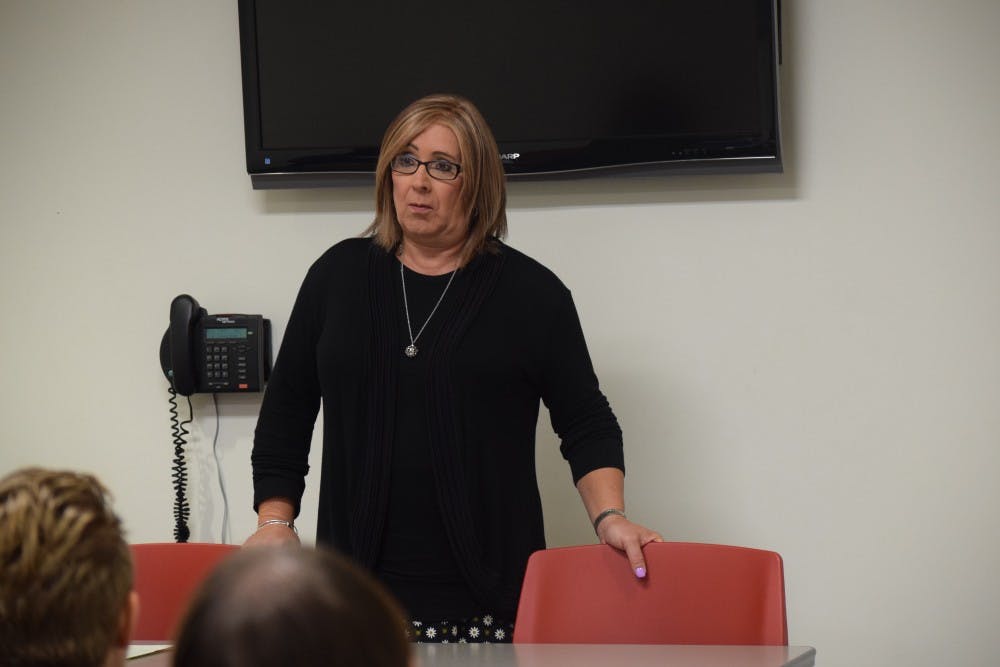Shippensburg University students attended a conference Friday that featured lessons about improving their leadership skills.
The annual Women’s Institute for Leadership and Learning (WiLL) conference was sponsored by SU’s Women’s Center and organized by center director Stephanie Erdice. This year’s WiLL conference ran from 2–6 p.m. on the first floor of SU’s Ceddia Union Building, and was open to all students.
Following announcements and an introduction, two sessions were offered with multiple lectures available during each time period.
One session, “Getting the Most out of the Media,” described the proper etiquette the public should use while dealing with the media. The Slate’s editor-in-chief, Mary Grace Keller, hosted the lecture and began by discussing common misconceptions the public has of the media.
“Although there is definitely biased media out there, a good journalist tries to be neutral and cover both sides of the facts,” Keller said.
Keller also discussed ways the public can work with news organizations and use the media’s coverage to its advantage. However, this can be better accomplished if done in a way journalists are accustomed to doing, according to Keller.
“When you understand how journalists work, it’ll get you the recognition you want while also being the way journalists want,” Keller said. “One thing I’ve run into is people that may be demanding coverage, even if they don’t mean to be.”
Keller said that in addition to demanding coverage, certain individuals might fail to let the news organization know all of the details of their event prior to the day it begins. Others, for example, may want their event covered without being willing to be interviewed by the journalists they had contacted.
“We can’t give you the best coverage if you don’t help us, too,” Keller said.
Another session offered was “The LGBTQ Community and the Workplace.” This session was hosted by transgender community advocate Janelle Crossley. Crossley recently made the transition from male to female, and described her experience of coming out to her employer.
“When you come out, you want to be in control of it,” Crossley said. “The proper way to do it is go as high up in human resources as you can.”
After consulting with her regional human resources representative, Crossley gave Manor Care one month to prepare the staff, as well as themselves, for her full transition. During that time, Crossley began to go to work as Janelle more frequently and slowly alerted her co-workers of the change.
Crossley said having a good rapport with your co-workers may make the process less challenging. Crossley said she was not on good terms with her superiors during this time, and had a poor work ethic due to the strain of living with two identities.
Crossley said she believes the coming out process would be much easier if the people running large corporations could become more educated on the subject. However, according to Crossley, it is not a well-known issue in the rest of America.
“We’re the black sheep — we hardly have anything,” Crossley said. “I’ve had people try to take it away from me for the past 50 years, I’ve tried to take it away from myself. It doesn’t work, it just comes back stronger.”




The Slate welcomes thoughtful discussion on all of our stories, but please keep comments civil and on-topic. Read our full guidelines here.